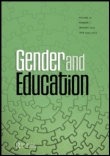 This article in Gender and Education 27.3 was born out of a commitment to contribute to the United Nations Millennium Goals related to gender equality. The commitment was not only mine as author, but also that of the organisations which sponsored and supported the research. The South African President of the Commonwealth Council for Educational Administration, the Commonwealth Foundation, the Matthew Goniwe School of Leadership and Governance in Johannesburg, the international network, Women Leading Education, and the University of Southampton all offered support. The number and range of organisations that helped evidences a fund of willingness to try to improve gender equality. I led the team from South Africa and the UK which undertook research in South Africa into how women became headteachers and how they lead their schools when appointed. The aim was to pilot a method of comparative research into women headteachers’ experience that could be used in other locations across the world.
This article in Gender and Education 27.3 was born out of a commitment to contribute to the United Nations Millennium Goals related to gender equality. The commitment was not only mine as author, but also that of the organisations which sponsored and supported the research. The South African President of the Commonwealth Council for Educational Administration, the Commonwealth Foundation, the Matthew Goniwe School of Leadership and Governance in Johannesburg, the international network, Women Leading Education, and the University of Southampton all offered support. The number and range of organisations that helped evidences a fund of willingness to try to improve gender equality. I led the team from South Africa and the UK which undertook research in South Africa into how women became headteachers and how they lead their schools when appointed. The aim was to pilot a method of comparative research into women headteachers’ experience that could be used in other locations across the world.
It is not possible to work with women headteachers in South Africa without being moved by the extraordinary determination and persistence of many who had fought against the odds to become headteachers and who often lead schools in circumstances of great difficulty. While some of the schools visited were well resourced, some lacked even basic services such as running water. It is hard for those who have not visited schools in impoverished rural locations in South Africa to imagine the depth of poverty and the immense challenges of educating children from communities which are disadvantaged in profound ways. Amongst the participants were those who believed they were making a real difference to children and who relished their work and their wider life. There were others who were ground down by the challenges or angered by the discrimination or harassment they had faced as women headteachers.
A number of publications have resulted from this work, exploring the opportunities open to women and how they have used them. This article in Gender and Education reflects concern that worldwide the lives of women leaders in education are most often presented as a set of figures in a table or translated into a graph. They appear as numbers in representation studies which aim at assessing how equally represented men and women are in leadership roles compared to their presence in teaching or in the national population. The research vividly demonstrated not only how problematic it is to collect and present numbers at all, the methodological challenges, but also how partial and misleading a picture representation studies may present. They do not show if the women who achieve ‘success’ in being appointed to a leadership position wished to take this path, whether they have paid an acceptable price in terms of upholding or compromising their values, and whether they are able to live a life they value. Of deep concern is whether representation studies act as a displacement activity, allowing regional and national administrative authorities to look busy and committed while failing to take effective action to increase equality. They may expend the available resource on counting how many rather than using it to act to address the inequalities which relate to far more than simply accessing roles of authority.
I recently attended a policy forum on gender equality worldwide at the International Institute for Educational Planning, an integral part of UNESCO. Attended by Ministers of State for Education, NGOs and academics, there was much debate about the necessity to monitor gender representation but also how to move beyond this. The numbers may matter but alone they are not enough. The article lays groundwork for challenging the primacy of representation studies. There is general agreement that understanding how many women have achieved positions of authority in education may be of significance. However, the article argues that there is a danger of using representation studies unthinkingly as if their purpose was self-evident, and of allowing them to become a substitute for proper debate about what the goals are, how we understand equality and how we might increase it. If the aims can be agreed then action might be devised. As it is, the article argues that the acceptance of representation studies as synonymous with action for gender equality may be counter productive and possibly another example of how mechanisms consistently emerge to subvert social justice progress while appearing to do the contrary.
Jacky Lumby, (University of Southampton)
Jacky is the author of the article ‘Gender representation and social justice: Ideology, methodology and smoke-screens’ which will appear in Gender and Education 23.7

